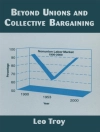This book examines the historiography of the African American freedom struggle from the 1890s to the present. It considers how, and why, the study of African American history developed from being a marginalized subject in American universities and colleges at the start of the twentieth century to become one of the most extensively researched fields in American history today.
There is analysis of the changing scholarly interpretations of African American leaders from Booker T. Washington through to Barack Obama. The impact and significance of the leading civil rights organizations are assessed, as well as the white segregationists who opposed them and the civil rights policies of presidential administrations from Woodrow Wilson to Donald Trump.
The civil rights struggle is also discussed in the context of wider, political, social and economic changes in the United States and developments in popular culture.
Inhoudsopgave
Introduction
1 Segregation and accommodation, 1895-1915
2 The Great Migration and the ‘New Negro’, 1915-1930
3 The Great Depression and the Second World War, 1930-1945
4 The post-war Civil Rights Movement, 1945-1965
5 Malcolm X and Black Power, 1960-1980
6 The new conservatism, 1980-2008
7 ‘An insubstantial pageant faded’: Obama and Trump, 2008-2020
Conclusion
Index
Over de auteur
Kevern Verney is a Reader in History at Edge Hill College of Higher Education












